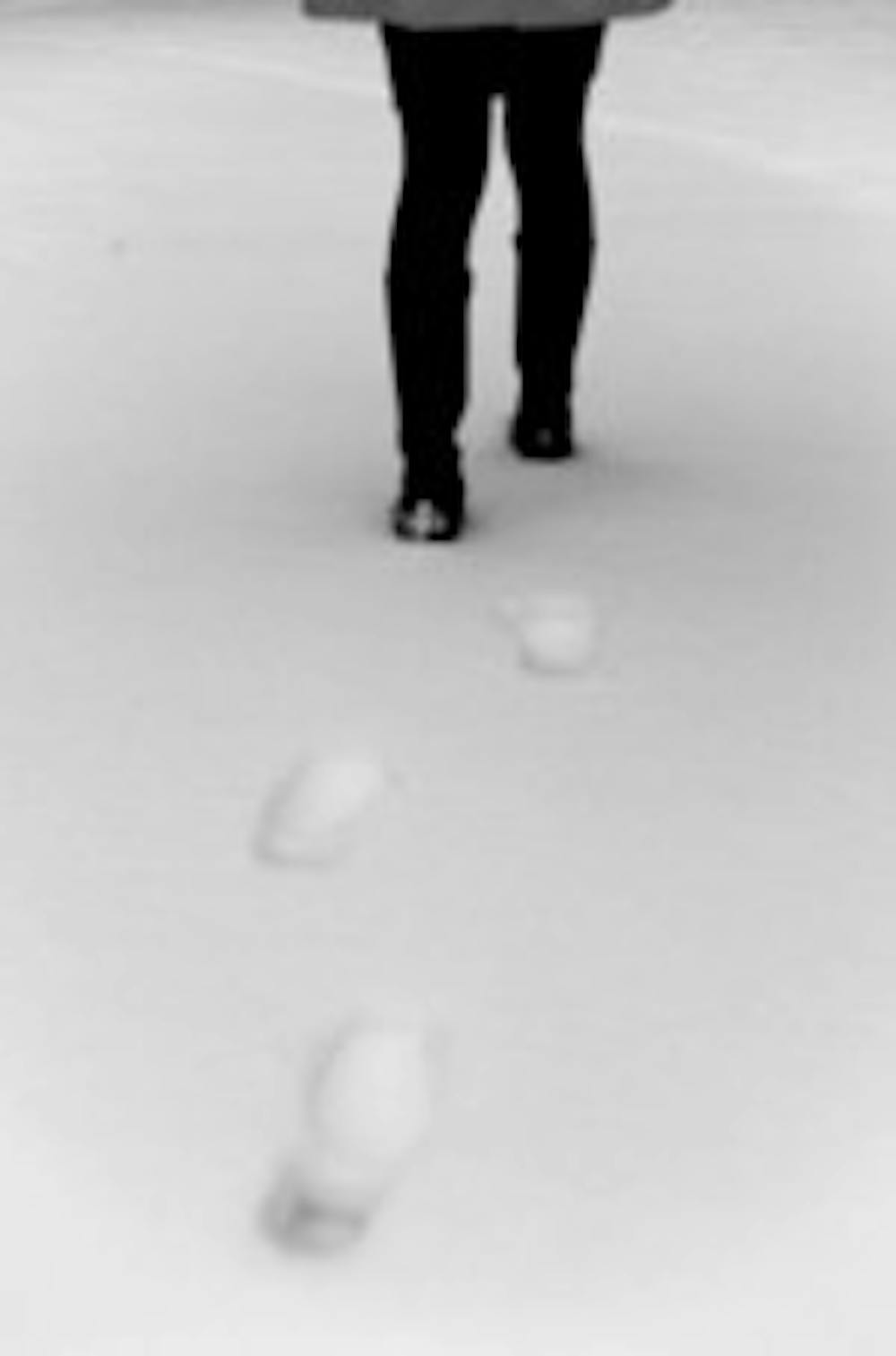Winter's almost here, and with the darker days comes colder nights.
At least this is the notion held by most students when they think of the upcoming season, though it was not always like this. For a lot of people, snow once represented a time of fun and enchantment. But this can change as people grow older.
Such is the case for Angelo Threats, a senior biological sciences major and Buffalo native.
"I started hating snow when I was like 9, before that it was fun…but after [I was] 9, I had to start shoveling and that's when it got real bad," Threats said. "If Christmas could be without snow like it was last year, I'm happy with that…snow causes trouble."
For many like Threats, the inconveniences that wintertime brings turn daily routines into everyday hassles. Shoveling the driveway, warming up the car to melt off the ice, and piling on warm clothes just to get the mail can all be mood-dampening chores. For others, the winter months can be a disabling period of depression.
Those who suffer from such severe levels of depression can be considered clinically depressed and could be diagnosed with Seasonal Affective Disorder (SAD).
Experts believe that, with SAD, depression is somehow triggered by the brain's response to decreased daylight exposure.
Two specific chemicals in the brain, melatonin and serotonin, may be involved in regulating a person's sleep-wake cycles, energy, and mood. The shorter days and the longer hours of darkness in fall and winter cause increased levels of melatonin and decreased levels of serotonin, creating the biological conditions for depression, according to kidshealth.org.
Some are so affected by the lack of sunshine and overbearing weather that they often experience anxiety, fatigue, low energy, difficulty sleeping, and even weight gain all throughout the season as a result of SAD.
"I've gone through it," said Steven Parks, a senior architecture major. "It's terrible…you have a lot of work to do for school and you have no way to release that energy or that stress because basically you're stuck indoors. There's nothing to do. That stress just kind of builds up and, toward the end, you get that serious depressed feeling."
Parks is just one of many students at UB enduring the winter blues and bearing the burden of SAD. The potential to catch a cold and the desire to stay inside as to stay clear of what awaits outdoors could lead to serious depression.
What doctors suggest is going out and getting stuff done despite the weather. Also, exercising, eating lots of fruits, a daily intake of vitamins, specifically vitamin D, and exposure to light can combat the symptoms. On especially cold days, people can warm up by drinking mood-enhancing drinks like green tea.
When the sun refuses to come out, people may act the same. But this reclusive behavior comes at a price. What people may be doing in order to avoid the cold can eventually end up hurting them, and can cause them to become sick.
"While it's true that UB's Student Health Services sees almost twice as many colds and upper respiratory infections during the fall and winter months than in spring and summer, that doesn't mean the cold weather and snow are making you sick," said Paula Z. Taton, a clinic manager of Student Health Services at UB. "More than likely it's due to being indoors with large groups of people for longer periods of time in the colder months.
While SAD is a real condition, it's important not to blame the wintertime and the cold for everything. In the meantime, keep warm and aware of ways to prevent sickness.
"Here's what you can do to keep yourself healthy," Taton said. "Get a free flu vaccine at Student Health Services. Wash hands with soap and water or hand sanitizer frequently. Cover your cough. Cough or sneeze into a tissue or, if needed, into the bend of your elbow. Drink plenty of water, eat a healthy balanced diet and get lots of rest."
Email: features@ubspectrum.com





